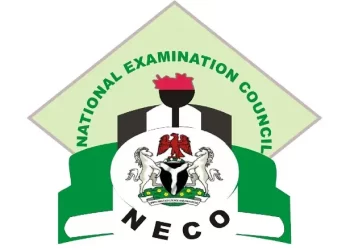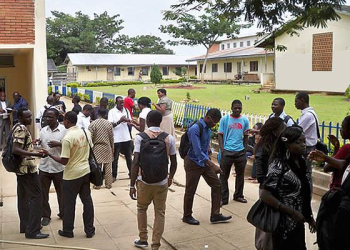The federal government and the Academic Staff Union of Universities (ASUU) will meet again today (Thursday) to continue negations on the lingering nationwide strike.
The Minister of Labour and Employment, Chris Ngige made this known.
He stated that the ongoing strike by the Academic Staff Union of Universities, ASUU, would soon be called off.
When asked to be specific on what the government was doing to have the universities re-open while addressing journalists, he said: “It will be resolved very soon. It will be resolved and very soon.”
The minister said contrary to insinuations that the federal government was not engaging with the Academic Staff Union of Universities (ASUU), there have been a series of meetings between all parties.
He dismissed the insinuation that the federal government was planning to introduce different salary payment platforms for the trade unions in tertiary institutions.
Ngige added that efforts were underway to resolve the ongoing dispute largely caused by payment platforms.
“It is work in progress. We have not given any preferential treatment to anybody.
“The remuneration is being looked at. If the government decides to raise, which government is ready to do, it will be holistically done for all university unions because they’re all in the same environment.
“And we know also that once you do it in universities, the Polytechnics will come. The Colleges of Education will come. They are all educational sector. And once you finish with the educational sector, we also know that the health sector will come.”
Speaking on the development, ASUU President Emmanuel Osodeke also confirmed that progress was being made by the parties.
Osodoke said: We are making progress with the Minister of Education(Adamu Adamu) who is our employer.
“Since we have been meeting with the Education minister you don’t hear public statements. We are dealing with him quietly and we want to resolve this problem among ourselves and then go back to school.”
The Academic Staff Union of Universities (ASUU) had insisted on the University Transparency and Accountability Solution (UTAS) it created, claiming that the Integrated Payroll and Personnel Information System (IPPIS) was shortchanging them.
The federal government had in March said UTAS failed three integrity tests.
The Senior Staff Association of Nigerian Universities (SSANU) and Non-Academic Staff Union of Allied and Educational Institutions (NASU) had also recommended the Universities Peculiar Personnel Payroll System (UPPPS) as their payment platform.
Mr Ngige, however, said: “No employee or worker can dictate to his employer how he or she will be paid.’’
He assured that efforts were on towards resolving the ongoing face-off between the government and ASUU as well as other university-based unions over payment platforms.
Ngige argued that the Federal Government was indeed engaging with ASUU, despite notions that it has been snubbing the union.
He, therefore, revealed that deliberations would resume today(Thursday) to consider the progress made by the various agencies involved in the months-long negotiations.
Part of those involved is the National Information Technology Development Agency who has run further tests on UTAS and the University Peculiar Personnel and Payroll System proposed by the Senior Staff Association of Nigerian Universities and the Non-Academic Staff Union of Universities.
Explaining the state of the strike, Ngige said, “To answer your question, ASUU went on strike by February 14. By February 21, I cut short my trip to an African session conference holding in Botswana and we held a conciliation with the employers, the Ministry of Education and the National University Commission.
“As the issue is bordered on money, remunerations, welfare, we did another conciliation meeting inviting the Ministry of Finance, Budget Office of the Federation, National Salaries, Incomes and Wages Commission and again, with their employers on the first of March. After that, it became clear that two cardinal things were still keen: the issue of renegotiation of their welfare package, as in the 2009 agreements. That Agreement says you can review every five years. So that issue stuck out like a sore thumb.
“Then another issue arose in that agreement, the payment platform of University Transparency Accountability Solution, which they say they’ve invented. They said they don’t want to be on IPPIS; that IPPIS was amputating their salaries and taking off certain allowances. No employee or worker can dictate to his employer how he or she will be paid. But the government gave this privilege in consonant with the Executive Orders three and five, for local content development, and I support it.
“So NITDA on their own was doing their test. And when NITDA gave their preliminary results, they said user acceptance was the one that they passed. But the whole thing is a total package of vulnerability, and stress tests. Vulnerability, whether this platform can be hacked into without difficulty or stress, how many people can it carry?
So that’s where they are based on what we call tripartite plus meetings, based on the presidential directive that the Chief of Staff, myself, finance and education find the solution. That meeting was held in the Banquet Hall. We gave an instruction again for them to go back and come back to terms.
“So as I speak to you, as the Arbitrator or Conciliator-in-Chief, I have not gotten back any of the reports from education, from salaries, incomes and wages, nor from ASUU because they’re supposed to report to me. I have not gotten any report. But on the government side, we’re calling up a meeting tomorrow so that everybody on the government side can report if he has a problem, so we know how to address it.”
On the allegation that the government has been snubbing the unions, Ngige said, “It is not true that nobody is talking to ASUU, we are talking to ASUU. Other unions are accusing us of preferential treatment because these other unions have also claimed that they have developed their own payment platform and that they will not use UTAS even if it is good. And they are putting it down in writing and say they have developed their own platform.
“So what the government has done at the last meeting was to say, NITDA, test the three platforms and rate all of them and give us reports. Their term expired last Friday, the time they were given. That’s why we’re calling them to come tomorrow (Thursday) and brief us.”
DAILY GIST reported that the union commenced a warning strike on February 14 over failure of the federal government to meet its demands and implement some agreements the two parties entered into previously.
ASUU’s demands include the funding of the revitalisation of public universities, the Earned Academic Allowances, the University Transparency Accountability Solution (UTAS) and promotion arrears.
Others are the renegotiation of 2009 ASUU-FG Agreement and the inconsistency in Integrated Personnel Payroll Information System.









